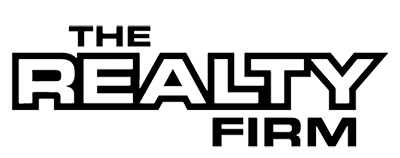Your lender won’t put you in an interview room and demand answers, but completing a loan application can feel like an interrogation. But you’ll sweat only if you don’t know the answers. Here are 10 Questions to Expect From Your Mortgage Lender
1. Where’s your proof of income?
You should have proof of about two years’ worth of income at the ready. Come prepared with pay stubs, copies of checks, and other documents that verify your employment. Be sure to disclose any other sources of income, including child support or alimony.
2. What are your assets?
Your lender wants to know about any cash reserves you have. A balanced investment portfolio demonstrates that your investment planning and goals aren’t solely pinned on a home value appreciation. They’re also resources that can be tapped in an emergency in case you need money for a mortgage payment.
3. What are your outstanding debts?
In general, the more debt you have the less likely you are to get a mortgage. More debt also means you’ll likely have to pay a higher interest rate on the money you borrow. The debt-to-income ratio limit on most mortgages is 43%.
The debt-to-income ratio measures how much of your gross (before taxes) income is used to pay housing costs, including principal, interest, taxes, insurance, mortgage insurance (if applicable), and homeowners association fees (if applicable).
Other debt, including credit cards, student loans, and car loans, will also affect your debt-to-income ratio.
4. What’s your credit score?
You should already know this, because you should have already pulled your credit report and checked it. Before you approach a lender, get your credit score in the best shape possible by paying off debts and disputing any discrepancies on your report. Even if it takes extra time, it can save you thousands of dollars over the life of a loan. Get your free credit reports from AnnualCreditReport.com.
5. Now that you are about to close, how’s your credit again?
When it’s time to close, your lender will ensure you haven’t mucked up your credit or debt-to-income ratio. Your credit report will be pulled again to make sure you haven’t opened any new credit or added new debt.
From the moment you apply for a mortgage right up until closing, don’t take on any new debt.
6. How much do you have for a down payment?
The larger your down payment, the more you will convince a lender that you take homeownership seriously and won’t walk away when times get tough. Your down payment will also determine if you can qualify for a mortgage, how much money the lender will give you, and what interest rate you’ll receive.
7. How will you use this property?
Owning a home as the occupant comes with a different set of regulations, qualifying requirements, rates, terms, and risks. If you’re buying an investment property, let your lender know up front. To get you the right loan, your lender needs to know what you plan to do with the property.
8. Are you involved in a lawsuit?
A lawsuit involving a financial judgment could affect your financial position. If you’re in this boat, you’ll have to prove why the judgment won’t harm you financially.
9. What are the details of your divorce?
If you are recently divorced, your lender will want to know about it. The lender doesn’t need to know about any of the drama that led to a divorce, only how it affected you financially.
10. What is your ethnic background?
This question isn’t discriminatory. It’s in place for federal oversight, so the government can crack down on discriminatory lenders.
Written by Darren Wilson at The Realty Firm




